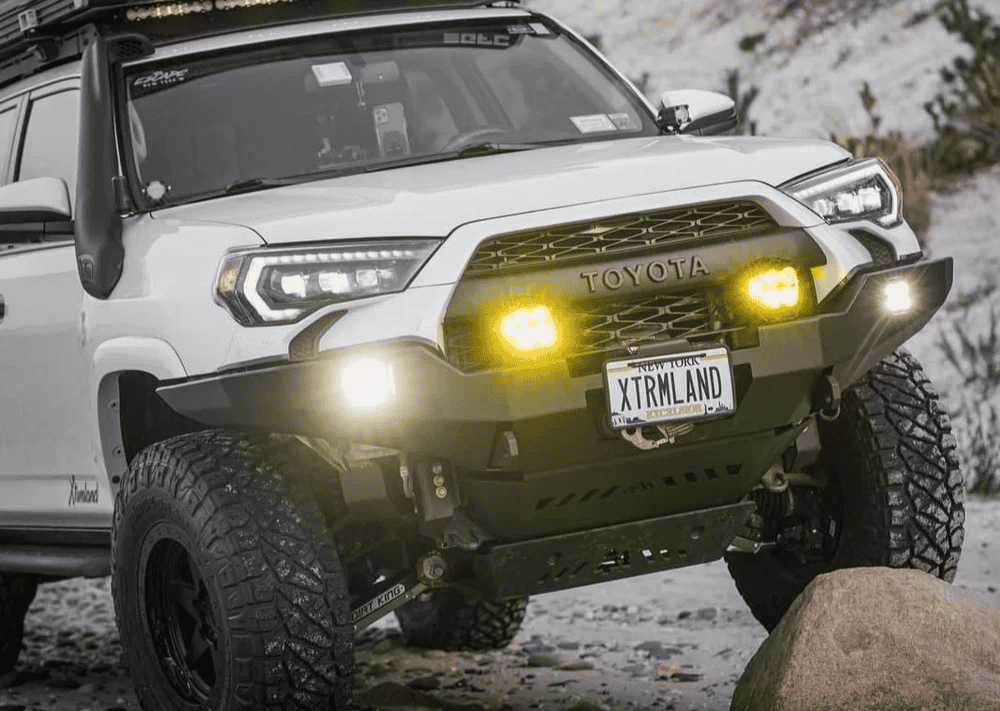Overland Vehicles

A 4x4 van conversion transforms a road focused platform into a machine that can climb, crawl, and hold traction when surfaces turn sloppy. The core change is a transfer case that splits torque to front and rear axles, paired with appropriate differentials and driveshafts. Suspension geometry must be updated to manage added weight and articulation while maintaining predictable handling on pavement. Brakes, steering, ABS, and stability systems need attention so the van still stops straight and tracks well. When each system works in concert, the result is confidence on washboard, ruts, and steep grades.
Most conversions choose a part time transfer case for simplicity and strength, though some builds target full time systems for snow and mixed surfaces. Gear ratio selection is critical, balancing highway cruise with crawl capability. Lockers or limited slip units help when a tire lifts or the surface gets slick.
Lift height should be only what is needed for tire clearance and travel. Overlifting hurts driveshaft angles and steering geometry, which can cause wander and vibration. Quality shocks with proper valving keep the van composed on chatter and whoops.
Tire size affects gearing, brake performance, and range. A move from stock to a 33 inch tire often hits a sweet spot for ground clearance without overwhelming brakes. Fresh pads, properly sized rotors, and a thoughtful brake bias keep downhill control in check.
The phrase 4x4 dodge van covers a few different bases. Older Ram Van platforms commonly receive solid axle swaps with heavy duty components like a Dana front axle, new leafs or coils, and a transfer case adapted to the transmission. These builds are proven and serviceable when done with quality parts. Modern front wheel drive models demand more bespoke engineering since their layout was never meant for a driven front axle. In some cases, builders opt for all terrain tires, traction aids, and suspension tuning rather than a full drivetrain change, but that is not the same as a true 4x4 system.
Wheel speed sensors, ABS modules, and speedometer signals often need recalibration after axle and tire changes. Keeping factory safety systems happy prevents warning lights and preserves stability control where possible.
A dodge van 4x4 conversion adds mass up front and midship. Recheck payload with real scale numbers. Heavy armor, larger tires, and a winch all count toward gross weight, which affects braking and handling.
Using widely available parts makes life easier during long trips. Pick axles, joints, and transfer cases with strong parts availability across the country, and keep a spares kit tuned to your build.
Conversions range widely in cost based on axle choice, fabrication required, tire size, and the level of integration. Labor hours grow with custom crossmembers, steering changes, and ABS integration. Plan adequate time for shakedown, alignment, and a full fastener re torque. Confirm local rules around bumper and headlight height, tire coverage, and emissions. Insurers may ask for documentation, so keep a detailed parts and labor record along with alignment sheets and weight tickets.
A well built 4x4 van conversion should track straight at highway speeds, brake without drama, and steer predictably. The best trail rig is still a road vehicle most of the time, so on pavement behavior deserves as much attention as off road traction.
Expect an iterative process. First drives will surface small rattles and harmonics that careful tuning can resolve. Proper pinion angle, balanced driveshafts, and shock valving make a noticeable difference.
Grease points, torque specs, and alignment numbers should live in your glove box. Schedule periodic inspections for joints, bushings, and fasteners after every set of rough road miles.
Turning a concept into a reliable build requires engineering, fabrication, and a clean handoff. A shop that understands axle setup, wiring integrity, and weight management will shorten the learning curve and reduce risk. If you plan to use your van for mountain trails, river shuttles, or cross country travel, a dependable partner ties the whole plan together and stands behind the work.
To see how a purpose built rig comes together, visit Overland rigs. If you already know your use case and want to discuss components and layout, explore Custom overland upfit. Curious about process, values, and the handoff experience in Fayetteville Arkansas, read Why choose OZK Customs.
A 4x4 van conversion rewards solid planning and careful execution. Whether your target is a classic 4x4 dodge van with a solid axle or a modern platform that needs extensive integration, the goal is the same: safe, predictable control on rough ground without sacrificing road manners. OZK Customs builds complete custom vans and overland rigs, handles partial upfits like suspension, armor, lighting, racks, and onboard connectivity, and delivers a detailed walkthrough at handoff. Our team in Fayetteville Arkansas turns real travel goals into rigs that feel planted and ready.
Tell us where you want to go, what you need to carry, and how you travel. We will translate the plan into parts, geometry, and wiring that work together so your dodge van 4x4 conversion is more than a look. It will be a capable companion for years on the trail and the highway. For inspiration across platforms, you can also start from OZK Customs home.
Ready to build a capable 4x4 van without guesswork? Tell us about your terrain, payload, and travel goals. OZK Customs will engineer a reliable solution and deliver a dialed rig you can trust. Share a few details and we will map your build.
ADDRESS:
6159 E Huntsville Rd, Fayetteville, AR 72701
PHONE:
(479) 326-9200
EMAIL:
info@ozkvans.com